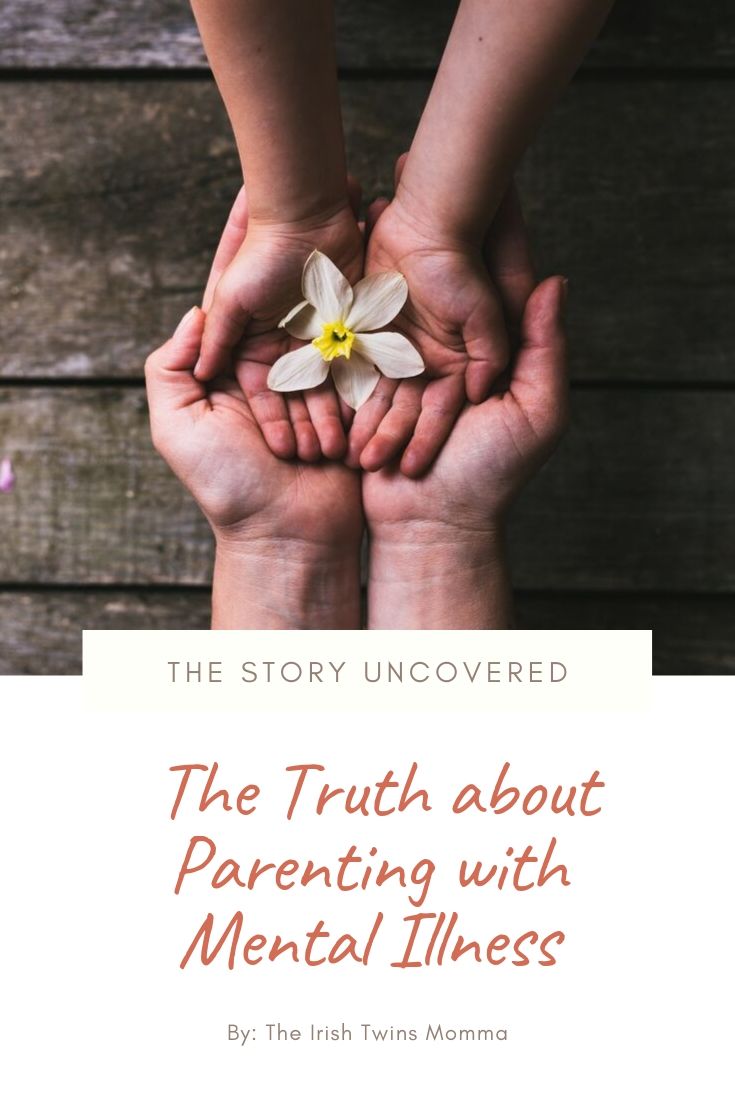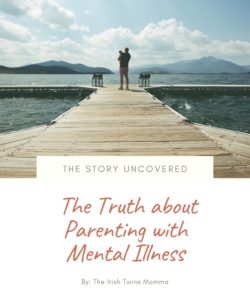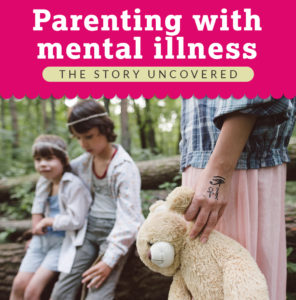This post contains affiliate links. If you click and buy, I may make a commission, at no cost to you. See my disclosure policy for more information.
People don’t feel comfortable getting mental health care, necessarily, because they’re worried that their friends are going to think they’re unstable or they’re crazy.
Let me share with you a short personal story about my friend Lisa, lived in L.A.
She was struggling with type 2 bipolar disorder. This disorder transformed her life into a depressing, dull state. She always felt guilty about everything she has done or going to do. The worst thing was that it affects her family and friends.
She was totally detached from being part of the family or her social circle. She loves to sleep, it becomes a necessity of her living. Later I came to know that whenever she wants to escape life and avoid daily tasks, she used to go to sleep to search for the comfort zone.
Her desire to participate in various social activities has gone. She was avoiding all the Invitations from friends due to a lack of excitement.
She is the mother of a 6-year-old boy. But her mental state constantly kept her away from her son. She can’t involve herself in her son’s academic, home, and social life. She has never been there when her son needs her the most. As a result, his curiosity and diverse activities diminish over the years.
She was sometimes behaving irrationally to anyone. A small inconvenience could trigger her at any time. The irritability is often combined with anxiety, and that time to keep the situation cool, she needs to leave the room. Once being alone, she used to yell or cry in frustration. She even tried to commit suicide twice in a month.
I know that sounds too frustrating, but it’s a harsh truth.
In today’s world, parents are suffering from several mental illnesses and getting worried that they are becoming the worst parents due to the illness.
By considering my friend Lisa’s story, we can tell that it is quite difficult to sustain against the impact of the illness, which also affects your family.
For parents having a mental illness, “these issues are amplified,” added Ryan Howes, Ph.D., psychologist, writer, and professor in Pasadena, Calif.
Joanne Nicholson, Ph.D, a psychologist and director of the Child and Family Research Core of the University of Massachusetts Medical School Center for Mental Health Services Research, added in this context – “When you’re living with any kind of chronic or severe illness, like mental illness, diabetes or cancer, there are times when your functioning will be compromised by that illness.”
But that doesn’t mean that you can’t live happily ever after with a healthy family. With proper support and enough resources, you can definitely become a good parent while coping with mental health issues.
What are the effects a parent’s mental illness can have on their kids?
The effect of a parent’s mental illness on their kids will be quite unpredictable. Parental mental illness can be harmful to their kids due to their biological, psychosocial and environmental risks. But is not mandatory that all kids will have the same fate.
One important fact you must know that a parent having a mental illness isn’t the only danger for the kids in a family. Rather, poor family relationships are much more risky to a child.
Take a look at this journal Published online by Cambridge University:
“A 4-year prospective study was undertaken of the families of 137 newly-referred English speaking psychiatric patients with children at home aged under 15 years. The group comprised a representative sample of such patients living in one inner London borough. Teacher questionnaires were obtained yearly for all children of school age in the families, and for age, sex- and classroom-matched controls.
Detailed standardized interviews were undertaken yearly with parent-patients and with their spouses.
A comparison was also made with a control group of families in the general population with 10-year-old children. Patients’ families differed in terms of a higher rate of psychiatric disorder in spouses and a much higher level of family discord.
Both parental mental disorder and marital discord tended to persist over the 4-year period, but the persistence of both was much more marked when the parent had a personality disorder. The children of psychiatric patients had an increased rate of persistent emotional/behavioral disturbance, which tended to involve disorders of conduct.
The psychiatric risk to the children was greatest in the case of personality disorders associated with high levels of exposure to hostile behavior. Boys showing temperamental risk features were most vulnerable to the ill-effects associated with parental mental disorder.”
Untreated Parental Mental Illness – The Impact on Kids
Kids who face consistent harsh parenting, parental distress, and exposure to vivid marital difficulties, 20% of them have multiple significant issues related to emotional and behavioral health, such as:
- A downfall in academic performance
- Lack of social functioning
- Mood disturbances
- They assume they have a care-taking responsibility for parents and any siblings
- Getting angry, anxious, and guilty for small reasons
- Experiencing shame and stigma
- Started substance abuse
Research has found that drug effects are long-lasting, and damages both kids and parents struggling with mental health disorders.
Risk Factors of having a Mental Illness
Parents who are suffering from a mental illness are at risk for developing social, emotional and/or behavioral problems. Other factors that place all children at risk, may include:
- Poverty
- Occupational or marital difficulties
- Poor parent-child relationship
- Parent’s also involved in substance abuse
- Aggressive behavior by a parent
“It’s up to you today to start making healthy choices. Not choices that are just healthy for your body, but healthy for your mind.”
Tips for Parents with a Mental Illness for Fighting the Issue
There are many things you can do as a parent while dealing with mental illness. Check out the tips to help yourself:
1. Ask for professional help with parenting
A professional can help you to understand kid’s behavior, their typical reactions, and how your illness may affect that behavior. They will also teach you to develop a parenting style that may help you to make a healthy relationship with your kid.
If needed, you may consult a therapist to teach your child about how to cope effectively with mental health symptoms.
2. Focus on the whole family
Professor Sherman from the University of Oklahoma Health Sciences Center added – “Research has shown that kids with parents with serious mental illness are at risk for developing mental illness themselves, both due to genetic and environmental issues.”
So, parents with mental illness should always keep an eye on their kid’s behavior. One of my friends in San Francisco also having the same issue. I suggested to him to study his kid’s behavior for several weeks. Guess what!! He and his family are now living happily ever after 🙂
3. Find happiness in simple things
Sometimes living with mental health issues may bring depression in your life. While you get professional help for yourself, look for small moments that can bring happiness in your life.
Joys that you can share with your family, your friends. Playing board games together, or having a family pizza break, watching a drive-in movie with family, these little moments will make a world of difference for you and your kids.
4. Create a crisis plan
Once you have time, consult with your doctor and create a plan of action for emergencies. If you need to be admitted to a hospital, consult the doctor and go for it.
Make arrangements for your kids for a living and how they get to school.
5. Live your passions
Both parenting and mental illness can be difficult to manage. So, start activities that can really boost you up. These may include exercise, arts, travel, music, learning, cycling, – whatever improves and builds up your identity.
You should also involve your kids with your passion. They’ll be thrilled to see you happy and can also build his/her personality by seeing you nurturing your creativity.
Conclusion
You should remember that mental illness is a very common thing today, and there is nothing to be ashamed of.
Don’t hesitate to call your doctor and ask for help. Learn to understand your illness, its triggers, and cycles, and apply this knowledge to fight against it. Best of luck.






Sharon Green
Very informative article! I enjoyed reading this post, it hit on several topics/situations that I (and my daughters) deal with daily. Thanks for sharing this information!
Rosslyn
This is very true. I specially agree with finding joy in simple things and like to live by that
Sandra Tanner
This is a great informative post. Thank you for explaining what it’s like to be a parent and have a mental illness.
Audrey at Two Pink Peonies
I think the biggest takeaway from this article is that a mom (or a dad’s or guardian’s) mental health is important for everyone in the family. It was interesting to read the impacts it has on kids. No one should feel guilty about taking care of their needs or refilling their cups!
Amy
It’s unfortunately so true – today there are so many factors that may make this situation more common – and I think we will see a lot more of it after Covid-19 is done. I love the idea of getting back to basics and doing what makes you happy – walking, nature, etc!
Kelly Marie
Lots of helpful information here. I think these parents are so brave. Thanks for sharing.